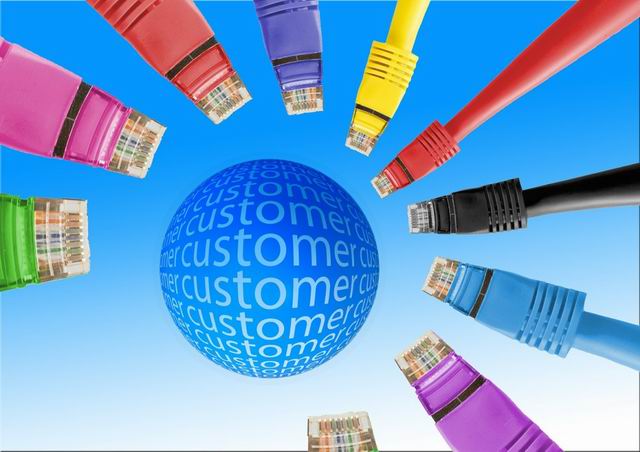Customer: “a party that receives or consumes products (goods or services) and has the ability to choose between different products and suppliers.”
Who is Your Customer?
As a business owner, do you really know who your customers are? If you have been in business for any length of time you may easily conclude that your customer is the person who buys from you. You would not be wrong, but it would be an incomplete answer.
In today’s social world, it has become more important to avoid generalizations and get to know your customers on an individual basis so that you can meet their expectations and satisfy their needs.
Granted, this can be done much more effectively by entrepreneurs and small businesses, yet large organizations can put customer relationship management (CRM) systems in place that help them identify their customers so that their message and brand speak directly to them.
Your message or brand has to be directed to a specific person or group of persons so that it’s targeted and appeal to the persons to whom it’s intended.
Could you write a summary of your typical customer, what they like, where they live, their income and age, what their challenges are? If not then this is your first step.
You should also find out what other places they like to visit when online. Do they visit certain forums or are they all members of certain groups? When you discover where they hang out, get into the habit of visiting those places.
It will take time, but it will be time well-spent. This will provide you with even more valuable insights into who your customer truly is, what their pain points are, and allow you to create solutions to solve the pain they’re experiencing.
Work on Developing Customer Relationships
I believe it would be fair to assume that you thank your customer for making a purchase, but do you go any further than this? Do you follow up with your customers or offer them any advice or information on using your products?
Just today I heard someone talking about a purchase she made that was just sitting unopened for over six months. She had seen it being used and thought it was pretty neat but had no clue how to use It, and she had no idea what type of recipes she could use in it.
As a small business owner or entrepreneur, what could you do differently? If you became aware that this was happening to many of your customers, could you create s simple suggestion sheet of some recipes to prepare in this appliance?
What if you went a step further and make a note to call your customer in two weeks to see how they were enjoying using the product? Can you visualize the relationship currency you would garner if you were to do that type of follow-up?
Unfortunately, too many business owners overlook the follow-up step. Instead of trying to build customer loyalty, they are always looking for new customers. If you want your business to grow and thrive, then it is crucial that you work on developing a relationship with your customers, and it starts with the follow-up.
Repeat Sales
It is much easier to get a current customer to buy another product or service than constantly keep looking for new ones. According to research done by Marketing Metrics, there’s a 5-20% possibility of selling to a new prospect. On the other hand, the probability of selling to an existing customer increases by 60-70%.
If you don’t have many repeat customers then take a look at your business model. Did you take the time to build a database or mailing list? Do you ever offer your customer’s related products and tools that complement their original purchase? If not you really are leaving money on the table.
You can improve this area of your business by offering great customer service, making their experience with your business a delight, and by following-up with your buyers.
A satisfied customer is only too happy to keep buying from you. They know they can trust your opinions and judgment and they know you are looking after their interests. If you can continually deepen this relationship you will have customers for life.
Conclusion
Relationship marketing includes developing a good line of communication with your customers. When you know everything you can about your product, you can talk about it with confidence and provide assistance. This helps to build trust.
For more relationship marketing strategies and tips, download your copy of Relationship Marketing: Key to Small Business Success.
No Fields Found.



